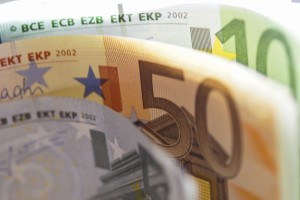 On 11 December, EAPN held a conference on Minimum Income Schemes (MIS) in Europe as part of the EMIN project (European Minimum Income Network). EMIN was a two year project (2013-2014) sponsored by the European Parliament, funded by the European Commission, and promoted by the European Anti-Poverty Network (EAPN) of which Eurodiaconia is a member. The project aimed at building consensus to take the necessary steps towards the progressive realisation of adequate and accessible MIS in European Countries. The project also aimed to strengthen cooperation at the EU level in relation to the achievement of Adequate Minimum Income Schemes, in line with the European Commission’s Active Inclusion Recommendation of 2008, the Europe 2020 strategy and in the context of the European Platform against Poverty and Social Exclusion and the EU Social Investment Package.
On 11 December, EAPN held a conference on Minimum Income Schemes (MIS) in Europe as part of the EMIN project (European Minimum Income Network). EMIN was a two year project (2013-2014) sponsored by the European Parliament, funded by the European Commission, and promoted by the European Anti-Poverty Network (EAPN) of which Eurodiaconia is a member. The project aimed at building consensus to take the necessary steps towards the progressive realisation of adequate and accessible MIS in European Countries. The project also aimed to strengthen cooperation at the EU level in relation to the achievement of Adequate Minimum Income Schemes, in line with the European Commission’s Active Inclusion Recommendation of 2008, the Europe 2020 strategy and in the context of the European Platform against Poverty and Social Exclusion and the EU Social Investment Package.
The conference was opened by two video presentations where people living on minimum income assistance told their personal stories. A string message from the personal stories was that money alone is not enough and that people need to be listened to and engaged in finding solutions to their problems.
Anne van Lancker, the EMIN policy coordinator presented the final synthesis report based on 30 national reports about the realities and obstacles of MIS across Europe. She pointed out that the definition of minimum income is not the same as adequate minimum income. Greece and Italy have no schemes at all. For the other countries, she pointed to the different levels of generosity of benefits across Europe with Bulgaria at 22 euros, 100 Euros in Poland and 1433 Euros in Denmark. She stressed the problem of little transparency of methodology of what is sufficient minimum income standards – with no clear definition of decent income.
Most national teams found that the MIS in their country was not enough to live in dignity. Homeless people, undocumented and ethnic minorities have difficulties to access MIS and overall take-up is serious problem. People are still unaware of their rights or do not access them because of conditionalities to access MIS, such as activation. For many, administrative obstacles such as request of ID cards or an address proves difficult for Roma and people experiencing homelessness.
In her recommendations she called for the creation of more sheltered and social economy jobs, personalised active inclusion measures, an increased ceiling for combining wages with minimum income to avoid inactivity gaps, personalised coaches as well as better cooperation between employment services, social service and NGOS.
Fintan Farrell, Project Manager of EMIN also stressed the need to remove the stigma and shame associated with MIS by raising public awareness and the benefit of MIS for all society. We need to fight back against the myths with economic and human rights arguments he said.
The European Commission representatives agreed that reforms needed to be made and that the Member States need to work on efficiency and better targeting. The Social Investment Package was built on investment principle and should support reforms and more efficient social spending. They also stressed that the link to enabling services would be extremely important when coming up with a basket of goods known as reference budgets.
Hugh Frazer (EMIN management team) concluded that we need to build public and political awareness, challenge the stigma and build political support around the idea of an adequate MIS. He also stressed the need to show linkages between MIS and other schemes and link with minimum wage and living wage. He highlighted the important role for the European Parliament given the support that is already there as well as the need for discussions with trade unions and at national level on the role of an EU Framework Directive on minimum Income.
To know more about EMIN and to see all publications visit:http://emin-eu.net and you can follow on twitter #EMINnetwork